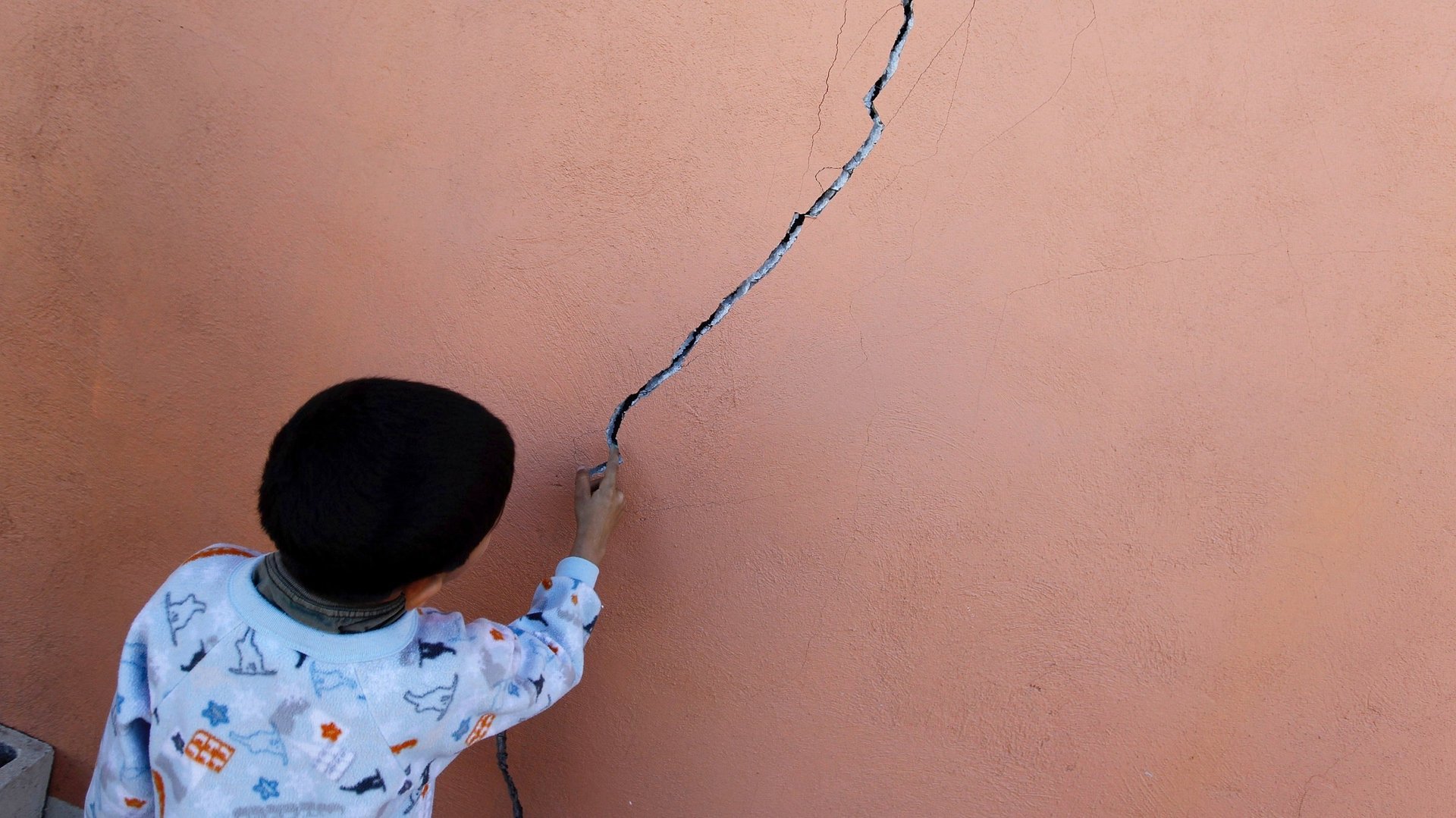Surviving an earthquake as a child could make you a bolder CEO, says study
Some chief executives are less averse to risk than others. But why? What makes one leader more likely to fearlessly pursue a risky acquisition, for example? One recent study has concluded that a CEO’s exposure to disasters during childhood—and its consequences—can shape corporate behavior.


Some chief executives are less averse to risk than others. But why? What makes one leader more likely to fearlessly pursue a risky acquisition, for example? One recent study has concluded that a CEO’s exposure to disasters during childhood—and its consequences—can shape corporate behavior.
Conducted by researchers in Singapore, Oregon, and Cambridge, the study is entitled ”What Doesn’t Kill You Will Only Make You More Risk-Loving: Early-Life Disasters and CEO Behavior.”
The research won an Ig Nobel Prize at Harvard University yesterday (Sept. 17). A quirky tradition, the Ig Nobels “celebrate the unusual, honor the imaginative—and spur people’s interest in science, medicine, and technology.”
A parody of the Nobel Prizes, the annual awards—handed out by actual Nobel laureates—recognize 10 unusual or trivial achievements in scientific research. The studies are usually head-scratchers that make people wonder why someone would investigate such a topic in the first place. Among yesterday’s winners, for instance, was research concluding that all mammals weighing above a certain weight, regardless of body size, take roughly the same amount of time to pee. It won in the physics category.
The study on CEO behavior won in the management category. The researchers found that:
CEOs who experience fatal disasters without extremely negative consequences lead firms that behave more aggressively, whereas CEOs who witness the extreme downside of disasters behave more conservatively. These patterns manifest across various corporate policies including financial leverage, cash holdings, and acquisition activity. Ultimately, the link between CEOs’ disaster experience and corporate policies has real economic consequences on firm riskiness and cost of capital.
The study cross-referenced US “county-level” natural disasters that occurred during CEOs’ formative years, ages 5 to 15, to determine their potential exposure to deaths from these events, and found marked contrasts. Apple CEO Tim Cook, for example, who was born in Mobile, Alabama in 1960, witnessed “only” 1.15 deaths across 57 natural disaster events between those ages. Steve Jobs, born in San Francisco in 1955, witnessed 31.6 deaths across 39 natural disasters during the relevant early years of his life.
The study warns, “A potential concern with our empirical method is that we do not directly observe a CEO’s disaster experience, but infer it based on the CEO’s county and year of birth.”